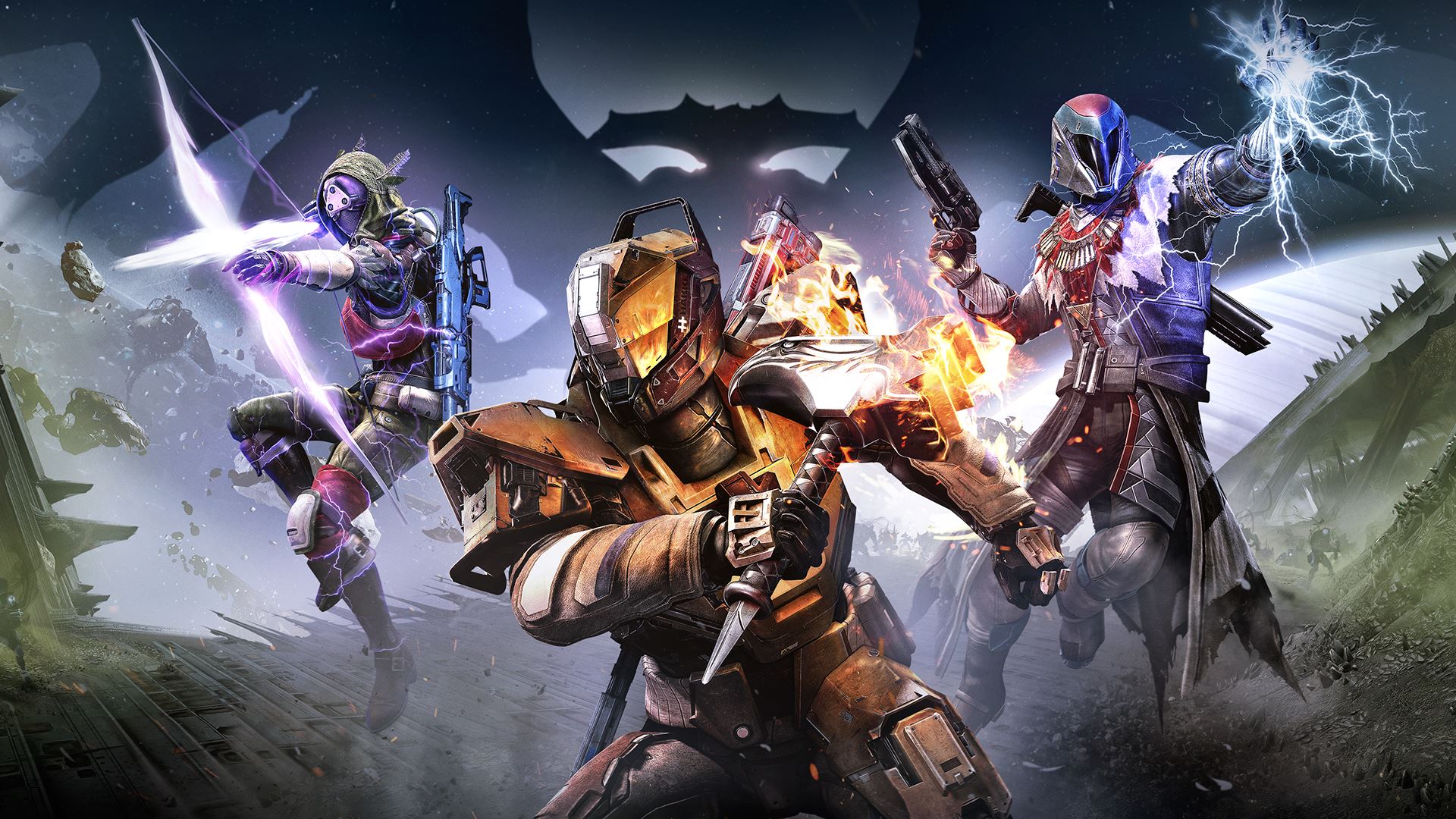Whether you consider it a necessity or a damning symptom of the modern AAA development scene, day-one updates and post-launch patches have become synonymous with the industry’s heavy-hitters. So much so, in fact, that cracking open a new game and firing up your console, only to be greeted by a one-hour mandatory download, has simply become part of the routine for early adopters.
Beyond the frustration and technical mishaps lies one of the industry’s most intriguing turning points of the last decade; one that has massive ramifications for the ways in which games are built, financed and received. That is, the relationship between developer and consumer.
Ripping up the Rule Book
Years ago, the communication between each camp was systematic. Studios would launch their projects into the ether and receive feedback weeks — maybe even months — down the line in the form of emails and impassioned letters. Take Square burdening the brunt of a backlash with Final Fantasy VII and that ending, or even Metal Gear Solid 2’s by-now infamous bait-and-switch, which championed Solid Snake as the undisputed lead of Sons of Liberty up until release, only to place players in the shoes of the effeminate rookie, Raiden.
Both bold creative decisions, no doubt, but if video games were once developed in a walled garden, then the Internet, and the instant communication it entails, has effectively upended the ol’ status quo. In the modern landscape when developers are but a Tweet away, there exists an open dialog between artist and audience, and it’s this two-way conversation that can directly impact the product.
Mass Effect 3‘s ending is perhaps the most notorious example in recent times. When BioWare debuted the conclusive chapter in Shepard’s story, fans took umbrage with the threequel’s finale, one deemed to be wholly unsatisfactory. Pitchforks were lifted, torches were set ablaze, and somehow — almost inexplicably — the US Federal Trade Commission became involved.
At the time, CEO Ray Muzyka was left facing the conundrum of balancing player feedback and the vision of BioWare’s writing team. With close to 100,000 players voting in a poll to alter the ending, it wasn’t just the vocal minority lobbying for an overhaul, and this protest resulted in the studio patching in extra material to ultimately provide more closure — content that would seemingly supplement, rather than compromise, the team’s artistic integrity.
The New Status Quo
Ten years ago such a turnover would have been inconceivable, and it circles back to the internet and social media breaking down barriers that were once considered to be so steadfast. Video games aren’t built in a vacuum. Yes, the platform has since become a divisive corner of the industry, but Steam Early Access was a defining moment in this paradigm shift, as power began to be drawn away from the money-men and major publishers and into the hands of the player.
Granted, this change has been a gradual one, but in the era of crowdfunding and online petitions, no longer do console titles arrive as packaged products; for better or worse, the developer’s duty extends far beyond the moment when a game goes gold.
And one studio embracing this modern approach to content is IO Interactive with this year’s Hitman reboot. Making its debut as a full-priced, digital-only product in December, the core experience will deliver one element deemed to be a cornerstone of the stealthy series: a murder sandbox. Assuming control of Agent 47 once again, early adopters will be getting in on the ground level, with the studio planning to roll out a steady stream of new — and, crucially, free — content in the weeks after launch.
Encompassing new contracts, locations, in-game events and even entirely new cities, IO Interactive will build upon Hitman’s foundations continuously, and there’s every chance we will see a comprehensive physical copy when all is said and done. Without doubt, it’s a novel approach for a series that established its reputation as a linear, story-driven affair, and one that is indicative of an older IP keeping one ear to the ground and evolving with the times.
Open Dialog
On the flip-side, IO and Square Enix are not only asking players to trust that the execution aligns with the vision, but they’re also setting up a scenario in which the traditional conventions associated with game development become lax. Much like the Early Access template we alluded to before, in this scenario, the audience will be considered an integral part of development, as opposed to existing as an abstract end goal.
The jury’s still out on whether IO’s Hitman reinvention will prove successful, but more than anything, it’s emblematic of a big-budget title adopting a more pragmatic approach to content that emphasizes the power of the consumer.

AAA development has undoubtedly ballooned in recent times, with the biggest releases comprising enough developers, artists, voice actors, sound designers and other talent to dwarf even some of Hollywood’s tentpole blockbusters. Then again, the insular approach to development that so often accompanies these marquee projects is fast becoming the exception rather than the rule. In 2015, prolific auteurs such as David Cage, Ken Levine and Hideo Kojima and the concrete visions they create are almost seen as a rarity. This isn’t to disparage their products, certainly not; though the concept of a sole creative vision governing an entire video game is no longer the most viable route for publishers, and it’s this financial reality that likely underpins Kojima and Konami’s much-touted fallout.
The Crowdfunding Era
Remember a time when the shrink-wrap encasing a boxed video game was the absolute seal of quality and public beta tests were unheard of? When the only way to contact a developer was a written (read: passionate) letter through the mail or an email? Simpler times, perhaps, but there’s reason to be hopeful for this new and liberal development cycle. Destiny, for instance, is a prime example of a studio striking up a mutually beneficial relationship that improves the team’s creative process as much as it does the player experience.
As Bungie’s shooter approaches its one-year anniversary, Destiny is markedly different from the new IP that launched in September of last year; it’s been shaped and moulded by a vocal community that the studio has respected from the off. Has Bungie’s strategy been without fault? Not necessarily. But its open dialog with the end user is an important mile marker on the road to an industry that is more inclusive, balanced and ultimately, player-centric.
Essential Reading:
- Call of Duty: Black Ops 3 Beta Codes Giveaway
- Until Dawn Developer and Their Supermassive History With Sony
- Top 5 Most Disappointing Video Game Sequels
Power to the People Feature
-
Do Consumers Hold More Power Than Ever Before in the Industry?

But are they always right?
-
Bait and Switch

Between marketing Sons of Liberty as MGS III and teasing fans with footage of Solid Snake infiltrating the Big Shell - a mission that would later be completed by the divisive Raiden - Metal Gear Solid 2 was chock-full of twists and turns even before release. Would this have spurred a backlash in the era of online petitions and Twitter?
-
Fan Reaction

Moreover, consider the backlash against the Mass Effect 3 ending, which prompted scores of fans to contact BioWare directly, lobbying for an alternate ending. Will this scenario rear its ugly head again in the future, and how will it affect artistic integrity?
-
One Ear to the Ground

It's no secret that Bungie has kept one ear to the ground over the course of Destiny's first year on the market, gradually tweaking the vision of the shooter to align with the demands of the audience. With The Taken King looming on the horizon, Destiny is a markedly different experience than the one that launched last September.
-
A New Frontier?

IO Interactive is breaking new ground with its Hitman reboot, adopting a content plan that bears semblance to Early Access in the sense that the studio plans to roll out missions and contracts in the months after launch, with early adopters getting in on the ground level. IO has assured fans that the digital-only release in December is not only a bona fide entry into the series, but it also represents a reboot of the Hitman series. Will its post-modern approach to content be a success with fans?










